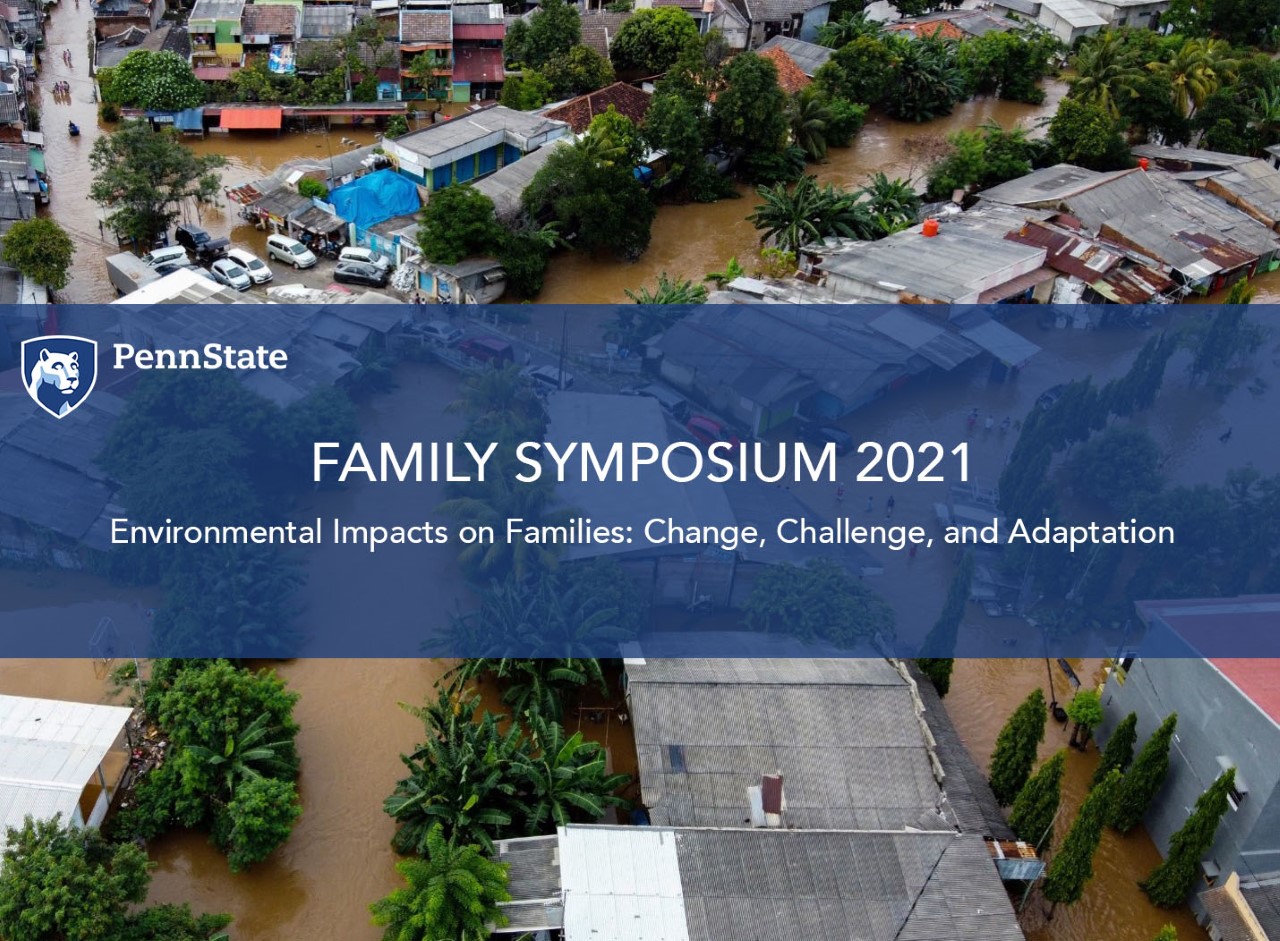
Penn State’s 29th annual Symposium on Family Issues will examine the role of the physical environment in family relationships, behaviors, and well-being, with a focus on disasters, climate change, and the built environment.
“Environmental Impacts on Families: Change, Challenge, and Adaptation” will be held Oct. 25 - 26. The symposium is open to everyone. Registration is required to attend, livestream, or view the recording.
Session one, “Environmental Disasters,” will take place 9 a.m. – 12 p.m. on Oct. 25. This session will focus on the impacts of environmental disasters such as hurricanes and tsunamis on communities, families, and children, as well as the role of individual and community resilience and government programs in recovering from such disasters.
Session two, “Climate Change,” to take place from 1:30 - 4:30 pm on Oct. 25, will discuss the intersection of environmental conditions, socioeconomic disparities, and community resilience in response to the changing environment. Speakers in this session will address how climate change has altered family health and opportunities in diverse communities.
The third and final session, “The Built Environment,” will be held from 9 a.m. – 12 p.m. on Oct. 26 and will focus on the role of the built environment on the well-being of families— such as the proximity of houses to food and community opportunities. The efficacy of neighborhood development programs on children, adolescents and families will also be addressed during session three.
More information about featured speakers and registration can be found here. The decision to hold an in-person or virtual symposium will be made in September, and registrants will be notified. Current Penn State policy states that all individuals are required to wear masks inside all campus buildings, regardless of vaccination status.
The Family Symposium series is funded in part by a grant from the Eunice Kennedy Shriver National Institute of Child Health and Human Development and sponsored annually by Penn State’s Social Science Research Institute, Population Research Institute, the departments of sociology and criminology, human development and family studies, and psychology, as well as the Child Study Center and Edna Bennett Pierce Prevention Research Center.